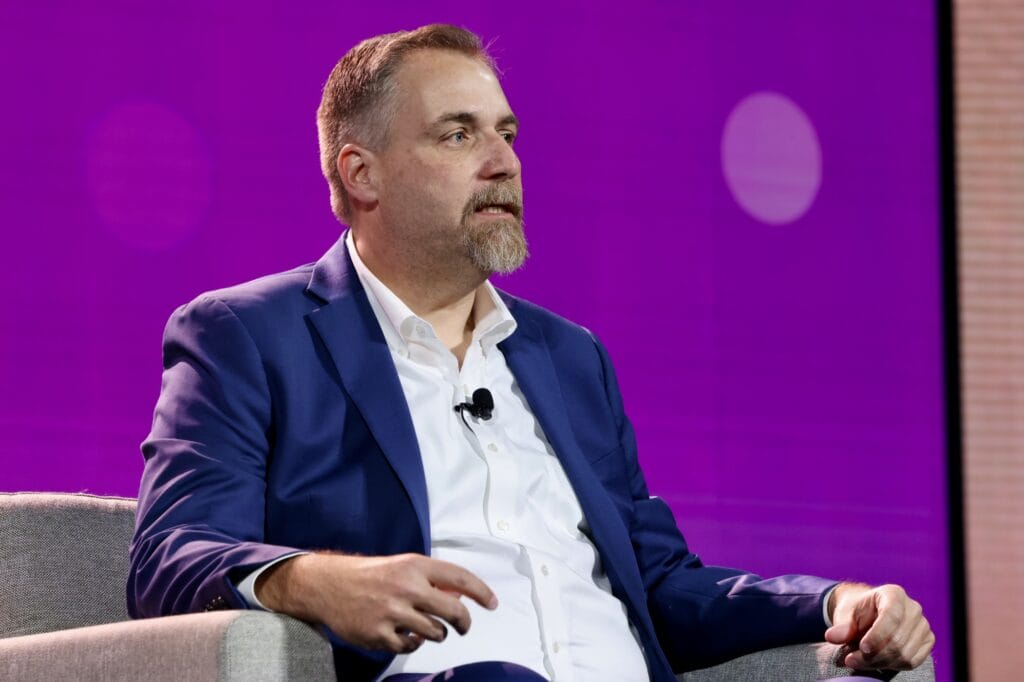
The time has come for skilled nursing operators to become more assertive with payors and value-based care partners, and regional providers are uniquely positioned to reap rewards, executives say.
This is a natural outgrowth of the federal government’s push to have all Medicare patients in some kind of value-based payment system by 2030, a trio of corporate nursing home leaders explained at the NIC Spring Conference last week in Dallas.
“The next step is to create our own future instead of being told what we’re going to be given,” said Joe Kiernan, chief strategy officer and senior vice president of network development for New Jersey-based post-acute service provider Ocean Healthcare. “It’s to say to the payors, ‘Now where’s my check, because I’ve been helping everyone else get one. Where’s ours?’”
A key is making clear how valuable skilled care is in value-based plans, which are typically led by hospitals or physician groups that retain most of the financial rewards.
“We need our seat at the table and have a voice and not just have those value-based programs dictated to us,” agreed Bernie McGuinness, CEO of the newly formed Journey Skilled Nursing. He previously founded and served as CEO of regional chain Majestic Care.
“Truly be a partner in those business arrangements,” McGuinness said. “Otherwise, we’re going to be left outside, picking up the scraps from these payers when we’re delivering valuable care and we’re a necessary part of their healthcare network.”
Building sound clinical capabilities is the first step to gaining respect, Kiernan noted. Emphasizing utilization review and lowering average length of stay can be helpful outcomes, he added.
Proof to partners
The rise of the regional operator over the last decade has enabled better regional density to market to hospitals, explained McGuinness, who oversaw operations in Indiana, Ohio and Michigan with Majestic.
Improved data collection produces many possibilities, he added.
“How do we take the data we’ve been collecting and how do we empower that and speak in apples-to-apples language with the hospitals, and really understand what they’re looking for in outcomes, in metrics?” he said, outlining key questions all providers must ask. “Take our data and speak in their language and really go about taking some risk.”
Showing rather than telling is vital, noted Gary Blake, CEO and founder of Creative Solutions in Health Care, the largest skilled nursing operator in Texas, with more than 160 facilities.
“Our ability to articulate our value to hospital systems and their plans, if they’ve built their own network, is really important,” he said. “We’re really able to drive key data points to them, showing our return to acute [settings] is lower; this is how we’re participating in this market; this is how we’re doing with nosocomial infections; this is how we’re dealing with pressure wounds. It raises the standards of how we’re viewed in our communities, and that’s been lacking.”

Leaders of accountable care organizations and other risk-bearing models need partners that provide the best level of care at the lowest possible cost, panel members pointed out. It’s also important for long-term care operators to seek niches.
“You have to identify gaps in care within different networks, different cities, different hospital systems,” McGuinness advised. “It may be hospice, it may be home care, it may be ventilator care or memory care in different markets. You take your four or five buildings in a geographic area and meet those needs for the referral sources.”
Impress upon them that you’re using technology and data analytics to track your own outcomes every single day, Blake recommended.
He and Kiernan agreed that establishing high quality in core service offerings is important. It allowed Ocean, for example, to expand from skilled nursing into broader hospice offerings. It’s now the biggest hospice operator in New Jersey, while also offering everything from home health to adult day care and outpatient behavioral health services.
“We work horizontally across all those verticals so we support each other,” Kiernan said. “ We can become a true value-based partner to our referral sources and their stakeholders. We’re a mid-size regional provider, but we’ve become bigger because we offer so much more than just that one business.”
Honing talent
Paying closer attention to how you’re recruiting staff helps, McGuinness said. Majestic expanded its talent acquisition staff, and then increased their incentives and performance tracking.
“There is no way around it,” Blake added about staffing, “If your turnover is high, then your quality is low. You’ve got to identify and address it very quickly and not make excuses.”
He believes it’s all about educating staff about how saving Medicare dollars can help and keeping them in the loop.
“To invest more in the information and the knowledge for your staff, you just never go wrong doing that,” he said. “If you can educate them about what is about to happen, they step up. They absolutely step up. … They’re helping you produce an outcome and it’s not forced on them. They reach up for it because you’re providing leadership.”
He said the mark of a distressed facility is always a lack of leadership, either at the local or corporate level.
“I would argue that point to my last day because leadership counts, and people want to follow something they can believe in, that they get to see a tangible outcome,” he observed. “They can touch it, they can see a cleaner building, they can see better food, they can see a painted wall. They can see a van that works and is not sitting on the side of the road. They can see management that looks like management, dresses like management and speaks like management.”




